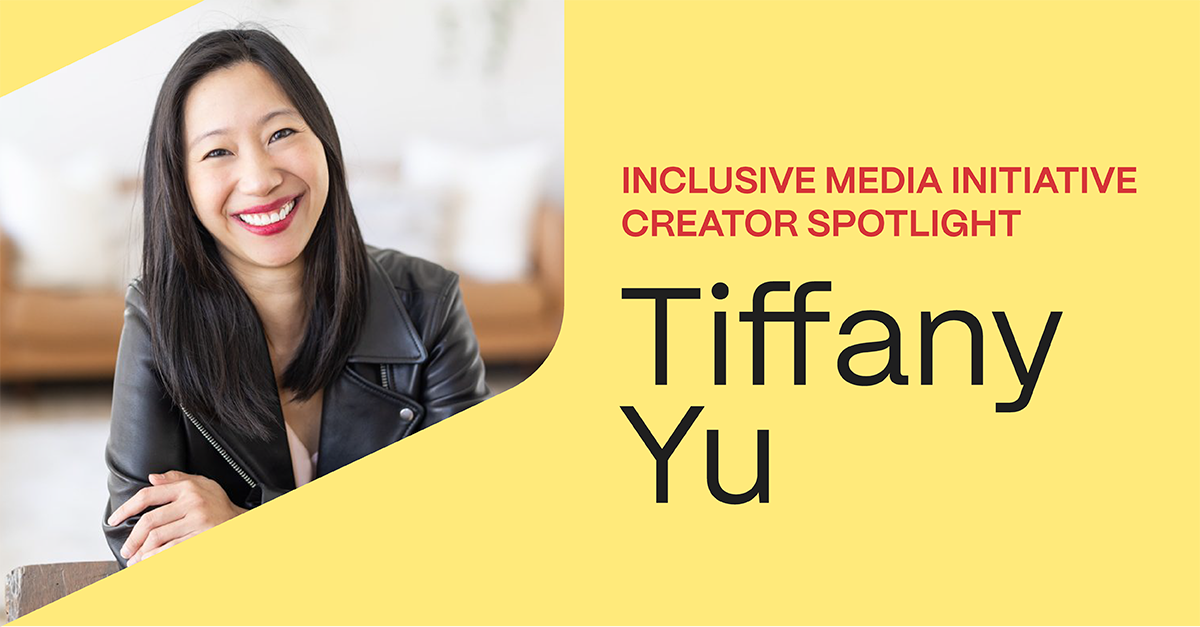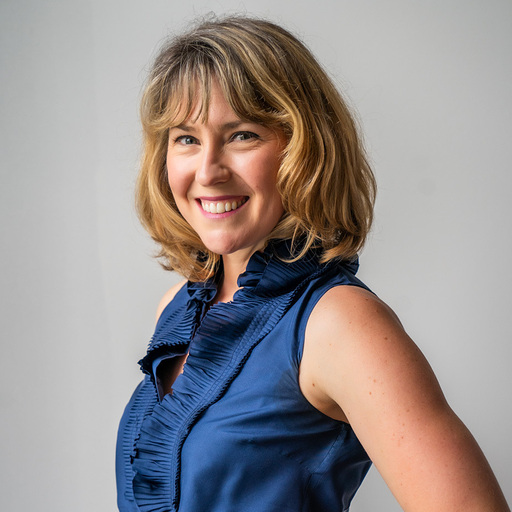
Inclusive Media Initiative Creator Q&A: Tiffany Yu
Pixability’s Inclusive Media Initiative amplifies the voices of diverse creators, fostering representation and connection across digital media. By showcasing YouTube creators from varied backgrounds and identities, we aim to challenge stereotypes and celebrate inclusivity.
We are honored to feature @imtiffanyyu, an advocate bridging the AAPI and disability communities. Her inspiring work highlights the power of authentic storytelling and identity pride.
Our heartfelt thanks to Tiffany for her advocacy and for sharing her journey with us. Her efforts enrich both the AAPI and disability communities, and we’re excited to share her story in this interview.
Theresa: What inspired you to start your YouTube channel?
Tiffany: I became more active on social media during the pandemic. I was mainly hosting in-person events for the disabilities community but the pandemic changed all of that. I started with TikTok and then YouTube invited me out to an AAPI Creator Collective Event with some of the most popular AAPI creators on YouTube. This was the inspiration for starting my YouTube channel. Shorts were first and then long-form content flowed more as a diary to follow my move to LA in June of 2022. In 2024 I joined the YouTube Partner Program and was assigned a YouTube Partner Rep. As part of the YouTube Shorts program I have been sent to some amazing events, best of all was the Paralympics. My rep helped get me and a friend get into the YouTube creator events in Paris.

Theresa: Are there specific cultural or personal values from your background that guide your work?
Tiffany: I grew up believing that the only pathway to success was through assimilation and erasure of race. Both of my parents came to the US in the 1970s into an atmosphere of anti-Asian sentiment. As an adult, I have sought out inclusion within different AAPI communities.
Acquiring my disability at the age of 9 also impacts my perception of my identity. Being Asian and disabled, it is difficult to reconcile – even seeing the different ways my brother was treated vs me as a girl, this cultural background is essential to understand. Physical disabilities in asian cultures are hidden away and and can be seen as bad luck so don’t bring attention to it all factors into these unique compounded experiences of oppression. YouTube has a lot of power and has leaned in to showcase diversity throughout the LA Google offices – AAPI creator collective event for example and even highlighting new organizations like Asian Americans with Disabilities Initiative have been important.
Theresa: How do your experiences as an advocate for people with disabilities intersect with your identity as an AAPI creator?
Tiffany: Mental illness in some Asian cultures is not considered a disability. I was diagnosed with PTSD after 22 years, a very long treatment gap. If someone had labeled the accident as traumatic, I could have begun working on the treatment earlier.
There has been more focus on Asian American stories, historically there has been a lot less representation in media. Now finding power in identity brings hope to see how strong the AAPI community is in solidarity with each other – uplifting for each other. Both for AAPI and the disability community as well.
YouTube noticed – the AAPI event opened up many doors on YouTube (Haily my YouTube partner manager needs a shout out!) The new Disability Creator Collective is in my sights now for YouTube. We are looking for more representation online, we do it offline. We create so we don’t feel alone and allows people to see themselves in our stories. By sharing our stories we feel empowered and see one another.
Theresa: How do you navigate representing your heritage while appealing to a broader audience?
Tiffany: The greatest gift you can give the world is being yourself. I broadened my work to talk about disabilities – I can talk about disability at work all day! Why you should care about disability, if you use an elevator or an electric toothbrush or listen to audio books – or turn on vibrate on your smartphone. You are using things that benefit people in the disability community.
As someone born and raised in the US, I learned there is no right way to be Asian American. Being monolingual is ok. It’s ok that I don’t know all of the rituals that go with celebrating the Lunar New Year. I don’t know what to order when I go to Dim Sum. We are all just trying to figure out where we fit and who we can be in the community with. Sharing the messy parts allows other people to also share. We are all a work in progress. I am excited that in my late 30’s I can still learn more about who my parents are and how I can uniquely represent their culture on my own.
Theresa: What does the Lunar New Year mean to you personally, and how do you typically celebrate it?
Tiffany: My dad passed away when I was 9. In some ways, I feel grateful my mom never forcefully imposed culture on us as kids. I can find meaning in them on my own. I do find a red envelope on my pillow when I go home to see my mom and she always gives me a clementine.
For me celebrating LNY, and any holidays that celebrate Asian heritage allow me to collect with my dad and still my mom. Those holidays allow for connection with my dad even though he has passed away.
In 2011 I celebrated the LNY in China, it was so powerful to see your holiday celebrated as a main stream holiday.
Firecracker in LA hosts bike rides all around the LYN. This past year I completed a 20 mile bike ride for the Year of the Dragon. It was my zodiac animal’s year and I wanted to make it my own. My dad loved biking, went and bought a bike and named it Stanley after my dad. At the 10 mile mark I was so tired. This other disabled biker and I joined forces together and biked back together. I cried at the finish line for a couple of reasons, first of all I couldn’t believe I biked 20 miles. And the fact that my dad loved biking and this was a significant year for the lunar zodiac.

Each year I just try to find some way to celebrate. Now that I have moved to LA, it’s weird not being with my family in Maryland to celebrate.
Theresa: Do you share Lunar New Year-related content with your audience? If so, what kind of response have you received?
Tiffany: Kind of! Citibank always gives my mom a calendar with the zodiac year on it. They also specify the holidays important across the Asian diaspora. Feb 28 is significant in Taiwan, 11/11 is the singles day for example – it’s cool to see a calendar that highlights my Asian culture.
Theresa: What role do you think representation plays in empowering creators with disabilities within the AAPI community and beyond?
Tiffany: It has been fascinating to me to see the cultural shift around embracing a disability. Friends sharing their stories of their disabilities more broadly. It may come with age, but I see the gifts we have are the things that make us different. Mia Ives Rubely – another disability AAPI advocate has been inspirational. She was the Senior Director for the Disability Justice Initiative and now the Senior Director of the Center for American Progress – I get two types of feedback, people feel interest or curious about her work because she is often the first Asian American women to speak up about disabilities. Even women without disabilities are reaching out.
Because we are disabled, we can never be the model minority – Mia had said this. And it made her realize that she could find her own voice and power in her own way. The fascinating part of intersectionality, the shame of a disability to be associated with Asian identity – it’s all connected.
Theresa: How can brands, media companies, and platforms better support creators with disabilities?
Tiffany: There is data that proves content from disabled creators can be more effective for brand outcomes. Because we are able to reach their own communities more authentically, a way brands cannot do it.
It’s a 13 trillion dollars market opportunity to reach the disabled community. Discoverability as a creator is important, if people think we are not marketable they are wrong.
From an AAPI perspective – Gold House would buy out movie theaters that had AAPI storylines to show that this film would be successful. What does the disability version of this look like?
It costs more money to live with disabilities but make less money. Large retailers now have adaptive lines, this is a good place for brands to invest in us. Even things like brand “trips”. If you give us an opportunity, we will reinvest that back into other communities too. We are all investing back into our communities to thrive.
Theresa: Tell us about your book and where we can buy it.
Tiffany: Here or wherever you get your books in print, audio, and book.
Diversability is an Asian-owned, woman-owned, disability-owned community business to elevate disability pride, advance disability leadership, and build disability power. Think of us like a disability employee resource group (ERG) that exists outside of a company.
To learn more about Pixability’s Inclusive Media Initiative, or to sign up, see below.
